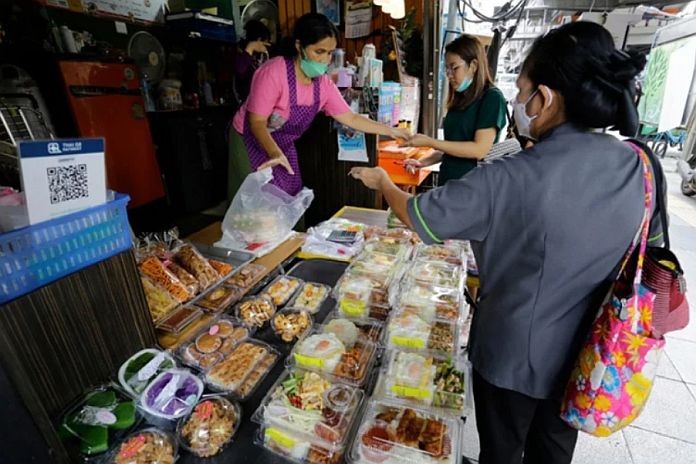By APEC Policy Support Unit
SINGAPORE – Economic growth in the APEC region is expected to slow this year amid soaring inflation, a protracted war in Ukraine and heightened uncertainties, on top of the continuing impact of the pandemic and virus mutations that are draining resources, according to a new report by the APEC Policy Support Unit.
The APEC Policy Support Unit is now downgrading its gross domestic product (GDP) growth projection for the region to 2.5 percent in 2022, which is lower than its earlier projection of 3.2 percent. The growth forecast for next year has also been downgraded, from 3.4 percent to 2.6 percent.
“The expected economic moderation in APEC is in line with lower projections for the global economy. Earlier this week we saw the International Monetary Fund revise downward its global GDP forecast for 2022 to 3.2 percent from 3.6 percent,” said Rhea C. Hernando, a senior researcher with the Policy Support Unit. “The sharp downgrades in economic growth for China and the US together with an expected contraction in Russia weighed on the APEC region’s prospects.”
Global food and energy prices increased by 23 percent and 60 percent respectively in June compared to a year ago, contributing to a surge in inflation across the APEC region of 5.4 percent for the period of January to June this year. This is the highest inflation rate the region has seen since 2008 when it hit 6.6 percent at the height of the global financial crisis.
“Not only is inflation high, but it’s becoming broad-based, which particularly harms poor households and small businesses,” she added. “We expect that global inflation will remain elevated for the rest of this year and then taper in 2023 as aggressive monetary tightening takes effect. Inflation could return to pre-pandemic levels by 2024.”
There is, however, a risk of inflation maintaining its momentum and remaining high for a longer period. According to the APEC Policy Support Unit’s analysis, the prolonged war in Ukraine could cause another round of supply shocks and price increases, on top of an already tight labor market.
Member economies are urged to ramp up crisis management efforts to soften the blow of inflation, uncertainties and virus mutations, especially for the most vulnerable. Measures that boost vaccination uptake remains vital to guard against a resurgence in infections.
Bringing down inflation needs to be the immediate focus for governments to help keep the cost of living relatively stable and reduce the risk of poverty. Monetary authorities need to be ready to use available tools at their disposal to bring down inflation and communicate policy changes clearly to anchor inflation expectations, said the recent report.
“Higher interest rates will dampen economic activity and stifle economic growth,” Hernando added. “We see the need for member economies to direct their fiscal policy towards improving revenue generation efforts, such as efficient tax collection and prudent government spending to ensure enough space to help the vulnerable.”
More coordinated and consistent cooperation is needed to improve the region’s economic resiliency in the medium to long term, explained Dr Denis Hew, Director of the APEC Policy Support Unit.
“Focusing on sustainability and inclusivity could future-proof the region,” he said. “This means strengthening the region’s connectivity, protecting the environment and mitigating the harmful effects of climate change, addressing the digital divide with updated rules as well as upgraded digital infrastructure and skills and increasing women’s participation in the economy.”
“While APEC has already taken some great initial steps to fortify the region’s resiliency, different member economies have varying economic conditions and development priorities. Now the key is to cooperate and translate these commitments into actions and actions into tangible benefits,” he concluded.
To read the full policy brief, Future-Proofing APEC Amid Challenges and Uncertainties, visit this page.





